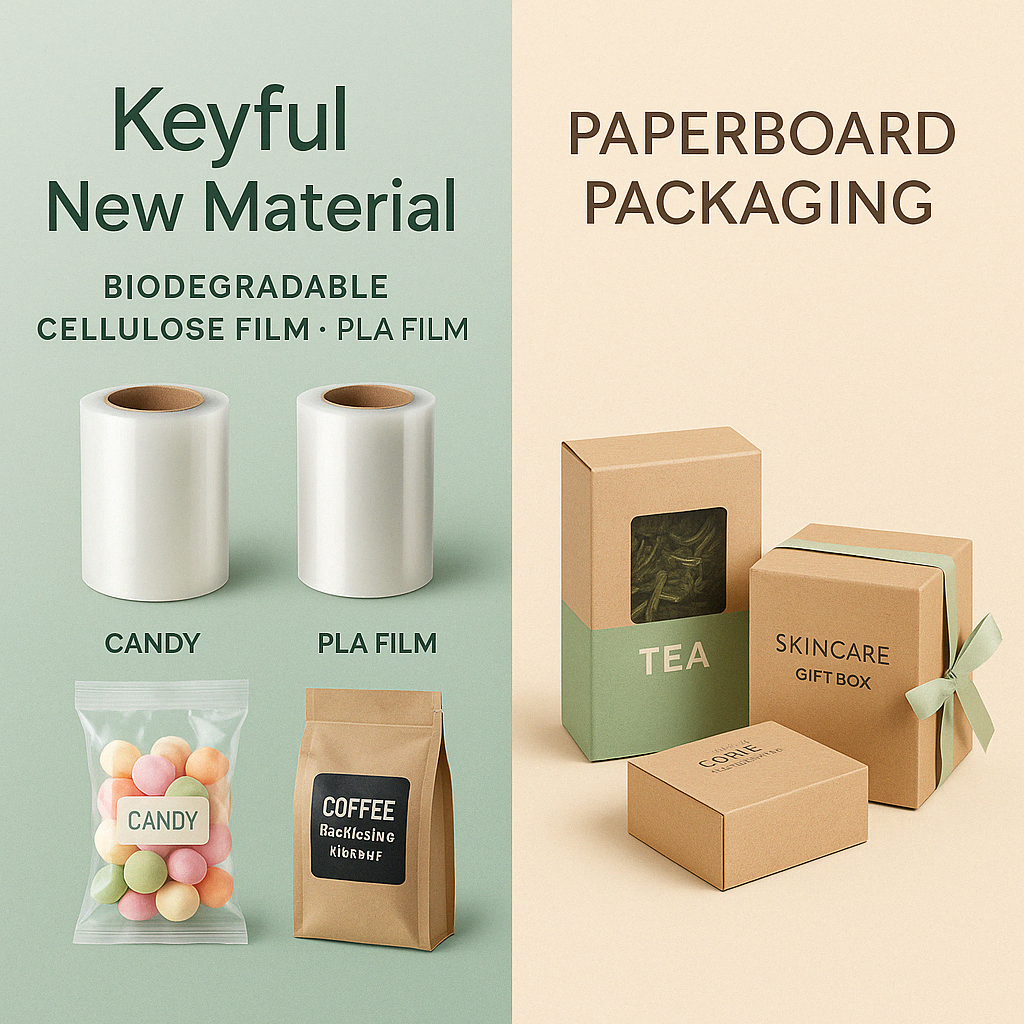Five Major Benefits of Compostable Plastics for Soil Health
The European Commission (EC) is currently developing a new EU Soil Health Law that clearly defines the conditions for soil health and restoration. As a vital non-renewable resource, soil plays a central role in providing healthy food and sustainable materials for a growing global population.
Compostable plastics are increasingly recognized in EU legislation for their relevance and support in sustainable soil and waste management. Here are five significant ways compostable plastics benefit soil health:
1. Facilitates Organic Waste Collection (e.g. Kitchen Scraps)
Compostable plastic bags can help categorize and collect food waste more effectively, even allowing the recovery of packaging with leftover food. If such packaging is discarded through organic waste channels, it avoids the pollution issues caused by traditional plastics in composting systems, reduces water content, and prevents swelling—ultimately improving composting efficiency.
2. Supports Both Industrial and Home Composting
Industrial compostable plastics (certified to EN 13432) can be treated alongside other biodegradable materials through organic recycling. This helps increase participation in organic waste separation, particularly in households. Italy’s experience serves as a prime example—where industrial compostable packaging has seen broad adoption. In 2018, the single collection rate for food waste in Italian households reached 80%.
3. Reduces Microplastics in the Soil
By enabling the correct disposal and treatment of organic waste, compostable plastics help minimize the contamination of soil with traditional plastics and microplastics. Most compostable plastics can be degraded into carbon dioxide and water without leaving persistent microplastic residues, thereby reducing long-term environmental harm and aligning with the principles of a circular bioeconomy.
4. Biodegradable Mulch Films Leave No Residue
Soil-biodegradable mulch films are a key application of compostable plastics in agriculture. Widely used in modern farming, they improve yields, soil quality, weed control, and reduce water evaporation and herbicide use. Unlike conventional PE mulch films, these biodegradable films fully decompose within a few years without leaving toxic residues in the soil. European standard EN 17033 explicitly outlines biodegradability and safety requirements for such films used in agriculture and horticulture.
5. Aids in Carbon Reduction
The EU’s Soil Health Law encourages the storage of organic carbon in soil through proper management of bio-waste. Compostable plastics help direct organic waste into composting systems, turning it into valuable humus instead of methane-producing landfill waste. This reduces greenhouse gas emissions and promotes long-term carbon sequestration in the soil.
About Keyful New Material
Founded in 2020 in Shenzhen, Keyful New Material is a pioneer in sustainable packaging solutions. Our core products include biodegradable cellulose films, PLA, and PBAT materials—all designed to align with global environmental goals. We proudly hold certifications such as EN 13432, OK Compost, FDA, RoHS, and LVHM (LVMH) compliance, validating our commitment to safe, certified compostability and global brand standards.
Our cellulose matte films and transparent compostable laminates are used widely in high-end box lamination, window packaging, and food-grade flexible packaging—providing a premium, eco-conscious alternative to petroleum-based films.
Compostable plastics offer a powerful synergy between waste management and soil health, supporting the transition toward a circular, low-carbon economy. As a leading innovator in the bio-packaging sector, Keyful New Material is committed to promoting these sustainable materials globally. We believe that with the right materials and policies in place,soil health and sustainable packaging can flourish together—for people and the planet.
